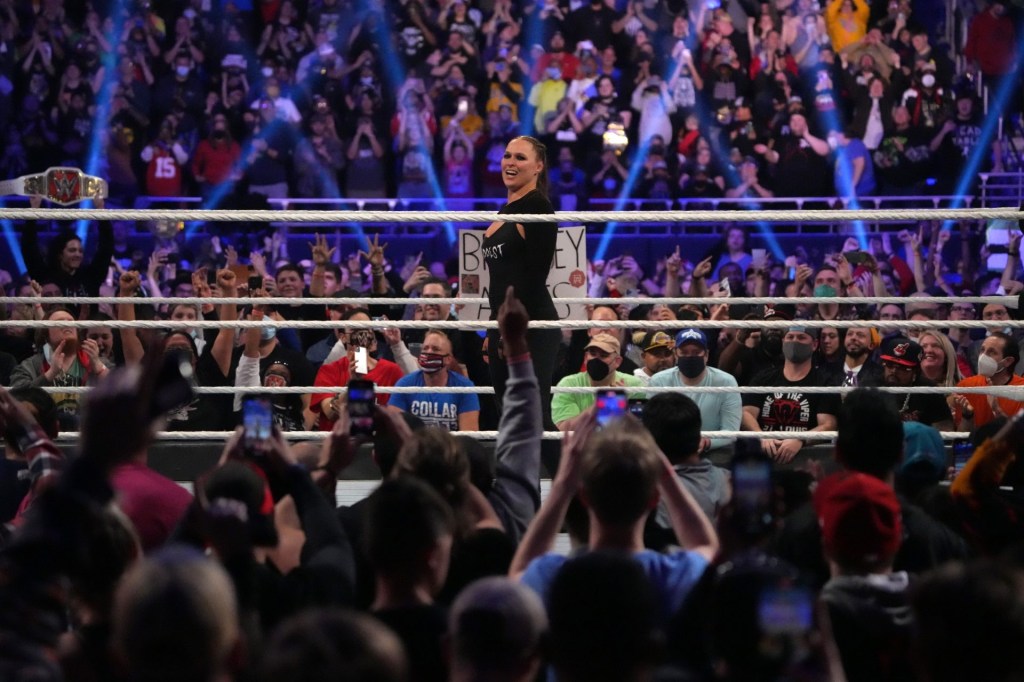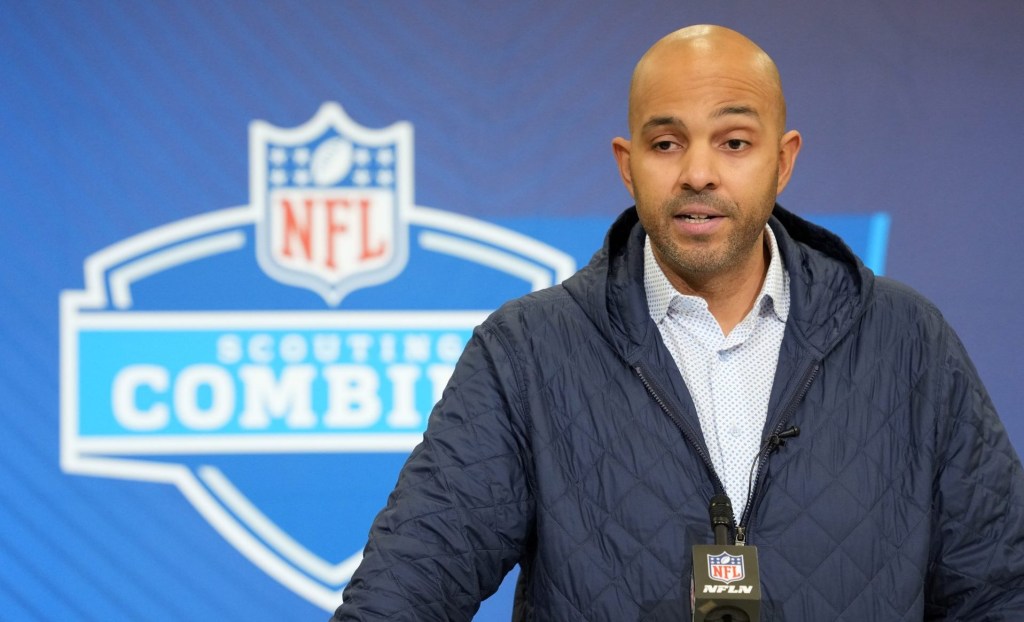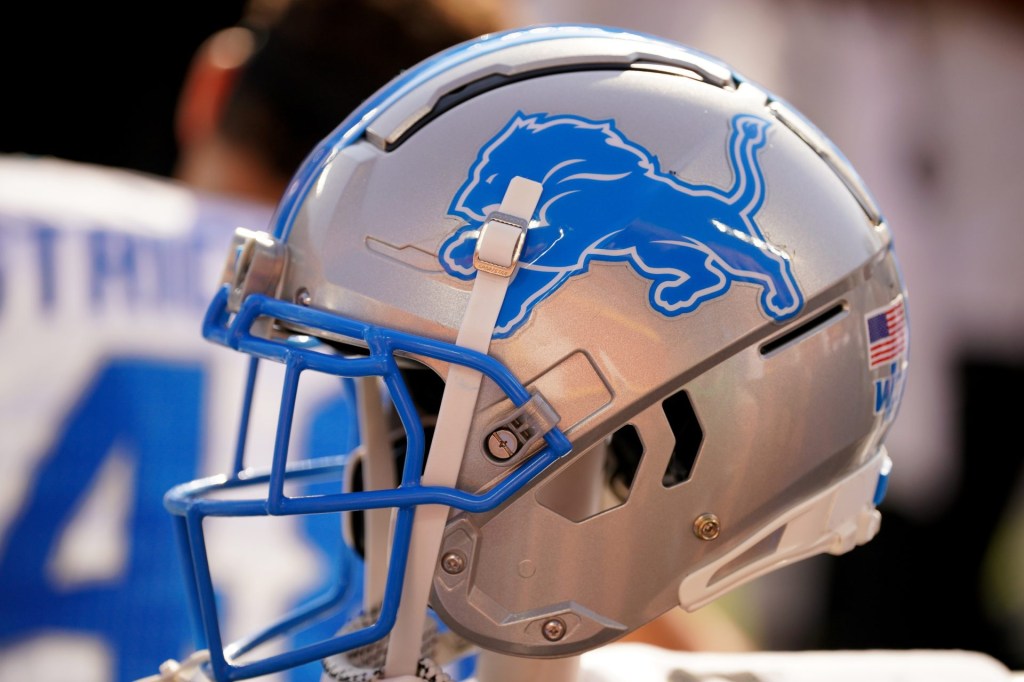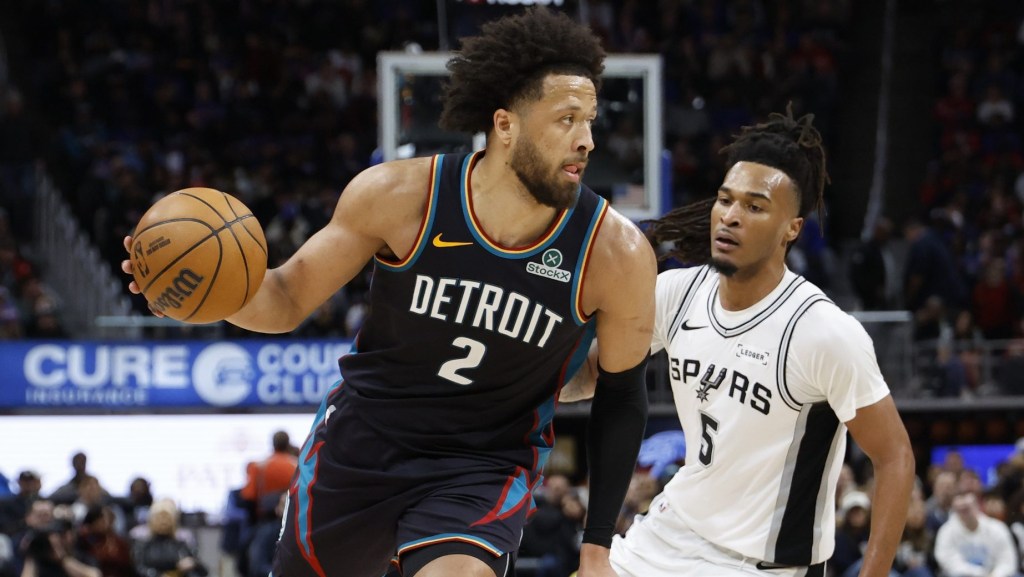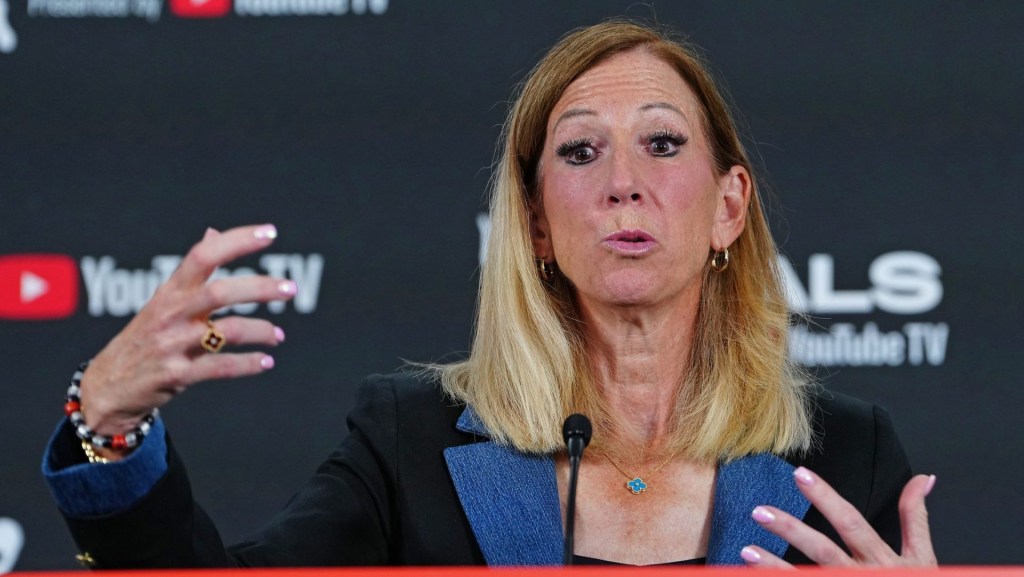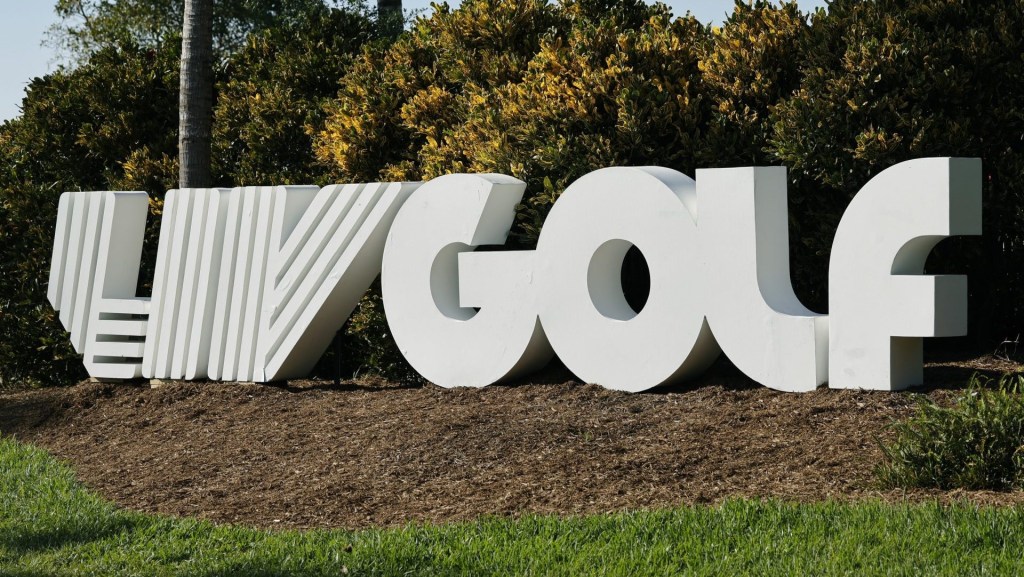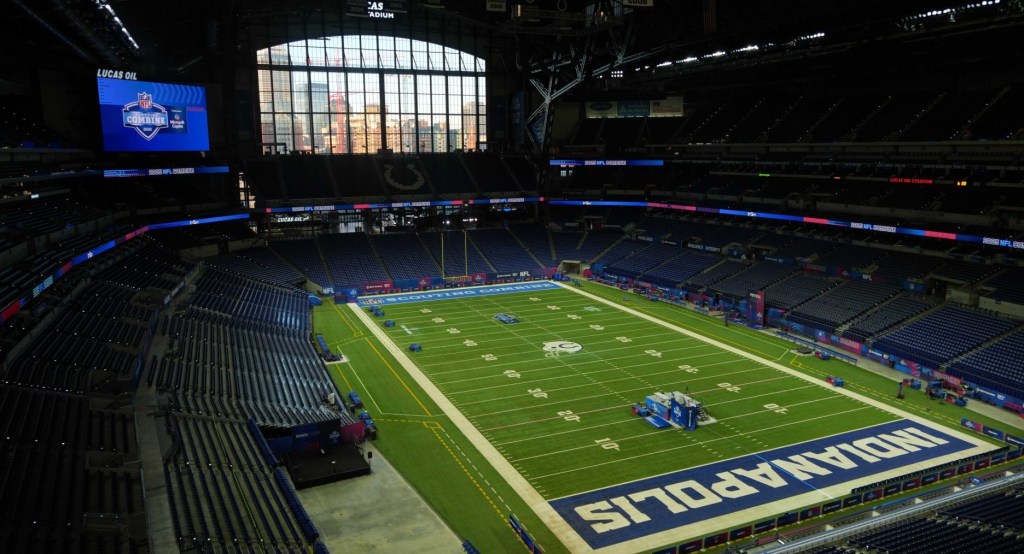Francis Ngannou certainly experienced the kind of next-level notoriety that comes with holding the UFC heavyweight belt.
But his compensation — especially as the top fighter in the most dominant MMA league on the planet — wasn’t something the Cameroon native liked to discuss.
“It was embarrassing,” Ngannou told Front Office Sports. “I’d get to places with some athletes that are not even on my level, and they’re talking about their deals and their revenue. I’d just shut my mouth and try to sneak out. … For about five years, it was a topic that I wasn’t able to talk about out loud.”
Ngannou isn’t ashamed these days. The 36-year-old signed with the Professional Fighters League (PFL) last month, a deal that gave him financial security and something else he missed out on with UFC: a voice.
Ngannou lobbied the UFC for years to hold its first event in Africa, as did Nigerian fighters Israel Adesanya and Kamaru Usman.
“At least one show, one Fight Night, so I could fight on my continent,” Ngannou said. “I really want to bring something back home. For an athlete, you want to get something and bring it back to your people. But none of that was ever considered.”
PFL president Peter Murray did more than just promise a fight in Africa. The continent will be among the six international regional leagues PFL will launch over the next three years. The league’s first international series, PFL Europe, launched earlier this year.
Ngannou — who received an unspecified equity interest in PFL — will serve as chairman of PFL Africa when it launches in 2025.
“Fighters did not have a major global alternative before,” Murray told FOS. “This is a disruptive model. Today around the world, you know what the strategy is for the significant majority of pro fighters.”
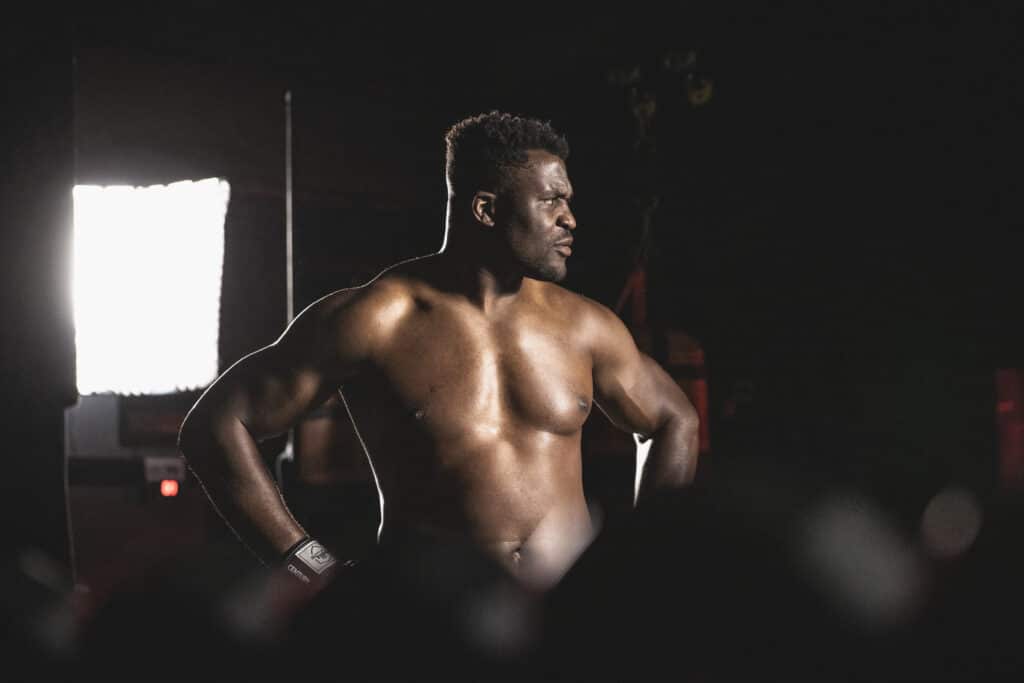
Five-Year Plan
UFC has seen rivals come and go over the years — including those launched with big-name (and expensive) talent like Affliction MMA and the World Fighting Alliance. When challenged, UFC has managed to either outlast or simply acquire its adversaries, like it did with WEC, Pride, and Strikeforce.
PFL grew out of the World Series of Fighting, an organization purchased in 2017 by an investment group that includes Washington Capitals, Wizards, and Mystics owner Ted Leonsis, the Los Angeles Dodgers’ investment arm Elysian Park Ventures, Washington Nationals managing owner Mark Lerner, and current Virginia Gov. Glenn Youngkin.
Officially launched in 2018, PFL has raised more than $200 million to date, the last round coming in May 2022 from a group that includes former MLB slugger and Timberwolves co-owner Alex Rodriguez.
The latest $30 million in funding pinned PFL’s valuation at $500 million — less than half of what UFC made in 2022 for parent company Endeavor.
While it doesn’t specifically break down financials for UFC alone, Endeavor’s sports group — for which UFC drives most of the profits — made $1.3 billion last year.
“We’re the No. 2 today after five years,” Murray said. “Obviously, we have a much broader vision. We are now on our next phase of growth, which is expanding our content franchises.”
Many within the MMA community consider Viacom-owned Bellator the No. 2 MMA outfit, even as PFL has increased its broadcast and streaming viewership on ESPN platforms by 45% over the last year, and whose broadcasts routinely reach 40% of UFC’s typical event viewership.
But the Bellator vs. PFL debate could be moot in the coming months.
Bellator president Scott Coker told MMA Junkie on Thursday that PFL “is definitely in the conversation” when it came to would-be suitors. While Bellator isn’t on the market, it has been open to partnerships or a potential acquisition for a while.
One industry source told FOS that a PFL takeover of Bellator could hinge on a new round of investment, with PFL committing its focus and money to its international expansion effort.
Beyond fronting those worldwide plans, Ngannou is also critical of the league’s foray into the pay-per-view business. He will only fight in the new PPV Super Fight Division, not the regular-season and playoff format PFL has used since its launch.
November’s PFL Championship was the league’s first PPV event, offered for $49.99 on ESPN+. The Super Fight Division will make PPV events more common — a model that could prove to be the most lucrative for MMA fighters.
The first fighter to sign on with the league’s PPV Super Fight Division was social media influencer/boxer Jake Paul in January. While the first PPV Super Fight has yet to be scheduled, the revenue split has been determined: Fighters will get a 50% cut of the PPV buys.
Ngannou could be making more than $4 million per fight, according to one industry source. His future PFL opponents will make least $2 million. Ngannou made about $650,0000 when he defended his UFC heavyweight crown in January 2022, his last fight with the promotion.

Dirty Little Secret
As UFC grew in popularity, so did the number of sponsors the league accumulated. In most categories, those exclusive deals prevent fighters from signing agreements with competing brands.
“It wasn’t just Reebok and [current official apparel partner] Venom,” Ngannou said. “Nobody was happy about those deals. There were complaints from fighters, but nothing happened because we have no power.
“I was this close to signing with Coinbase for over $1 million a year. At the time, there wasn’t a million dollars in my bank account. I had never seen a million dollars, so that was a huge deal.”
Then UFC announced that it had signed a 10-year deal with Crypto.com worth $175 million in July 2021.
“What did I get from the Crypto.com deal? Zero,” Ngannou said. “I was losing all that money on the side. Before, fighters used to have sponsors on their shirts and other things, but now you have nothing. You have no say about it. They are generating all this massive revenue out of sponsorships, but [the fighters] get nothing.”
It’s estimated that UFC fighters get about 20% of UFC’s revenues, according to a long-running lawsuit filed by several former fighters alleging UFC was artificially suppressing fighter pay.
UFC President Dana White has remained defiant on the pay issue.
“Believe me, these guys get paid what they’re supposed to get paid,” White said last August. “They eat what they kill. They get a percentage of the pay-per-view buys. And the money is spread out amongst all the fighters.”
While settlements and verdicts in the multiple federal cases in federal could change how UFC operates, Ngannou mentioned another option.
“For so long there’s been only one destination,” he said. “Now it’s clear that they’re not the only destination. Look, I am the heavyweight champ, and I signed with PFL. I’m happy with that. I think this will send a huge signal to others out there that [UFC is] not the only option in the market.
“Things will change. Things will definitely change.”
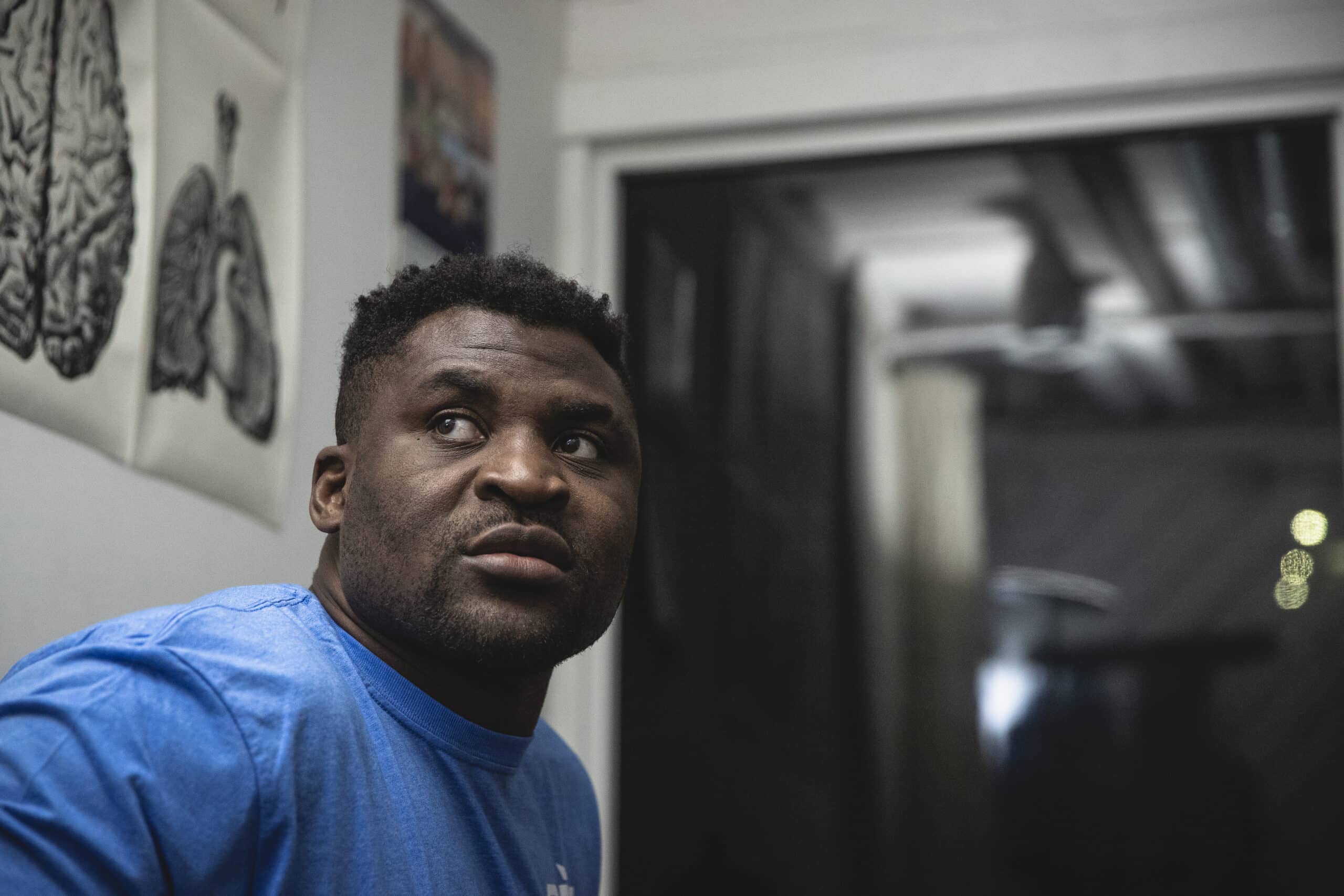
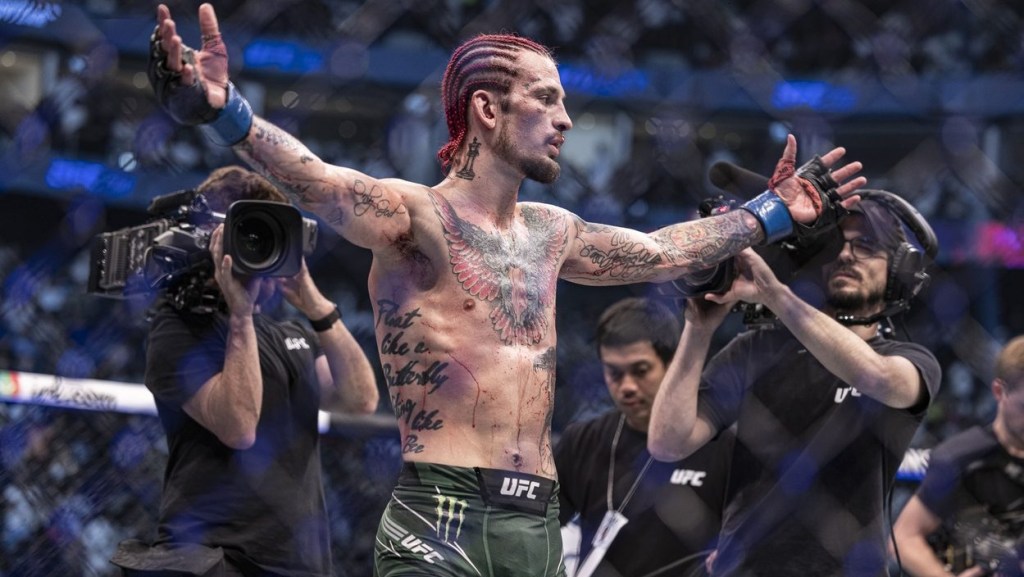
![[Subscription Customers Only] Jul 13, 2025; East Rutherford, New Jersey, USA; Chelsea FC midfielder Cole Palmer (10) celebrates winning the final of the 2025 FIFA Club World Cup at MetLife Stadium](https://frontofficesports.com/wp-content/uploads/2026/02/USATSI_26636703-scaled-e1770932227605.jpg?quality=100&w=1024)

